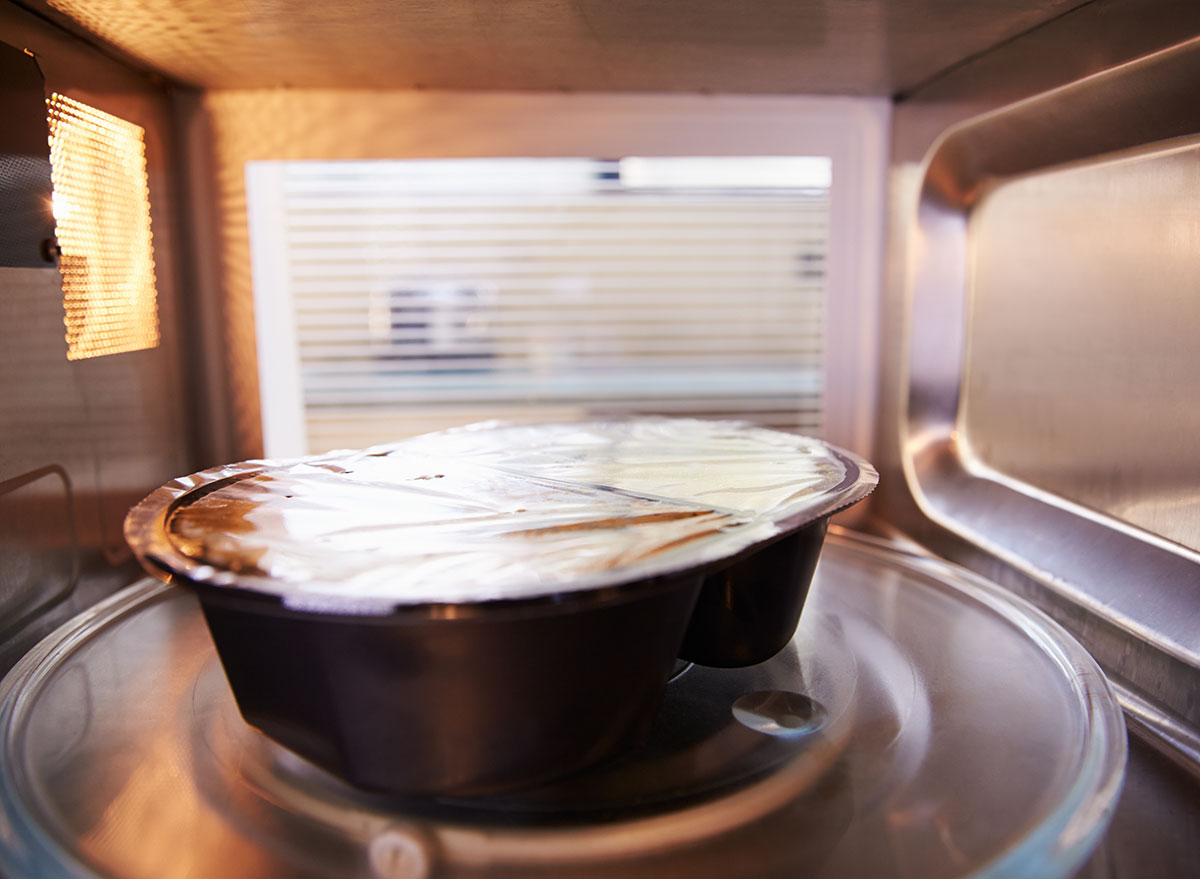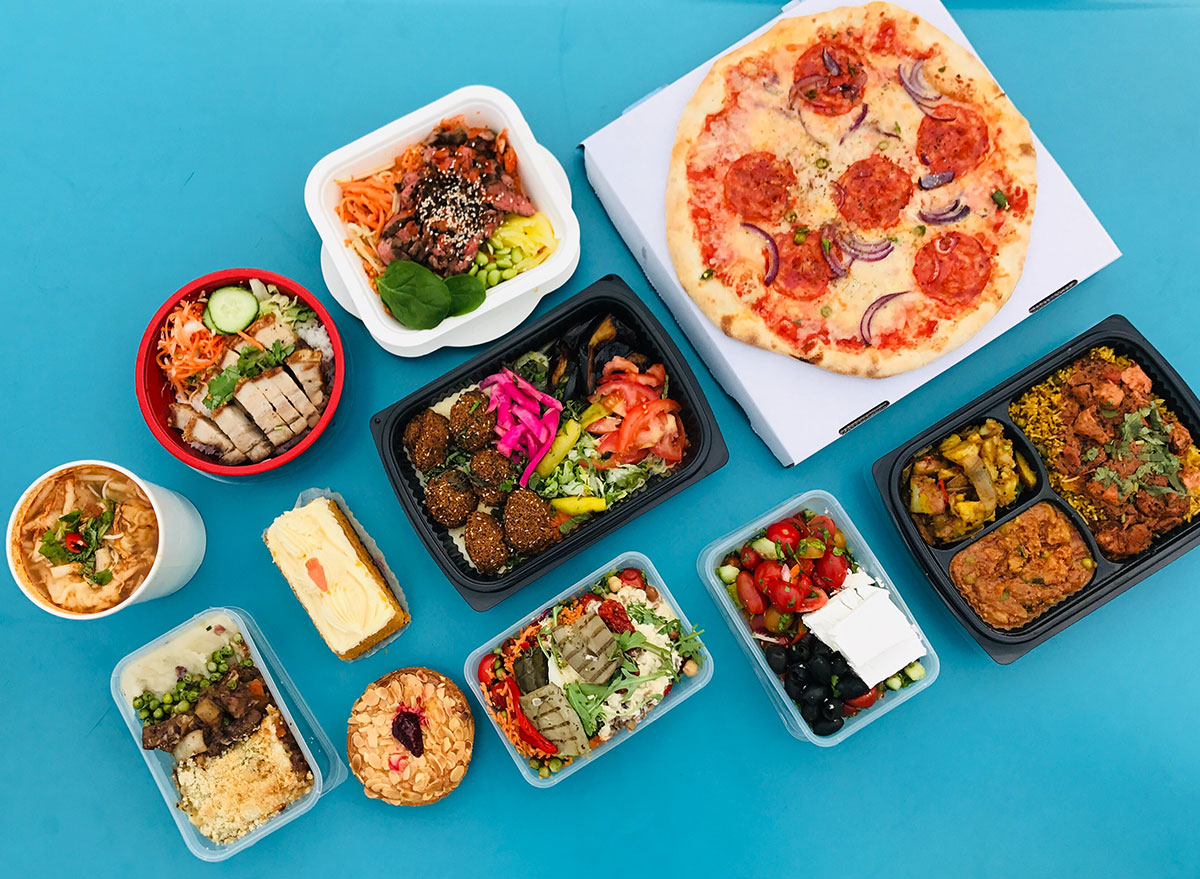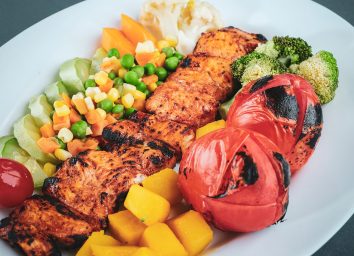Why Eating Once a Day Is Unhealthy, According to Dietitians
Eating one meal a day isn’t just a newly popular method to lose weight—for many, it’s an unintentional dietary pattern. Between getting bogged down with work during the week or binge-watching a new show for hours on end over the weekend, you could be skipping meals frequently without even meaning to.
The one-meal-a-day (OMAD) diet is exactly what it sounds like, says Trista Best, MPH, RD, LD from Balance One Supplements, adding that it’s “a way of eating that requires the dieter to eat only one meal a day with a one-hour eating window and 23 fasting hours.” Essentially, individuals who adopt the OMAD diet are taking intermittent fasting to a whole new level, and while this method will likely help you drop a few pounds in the beginning, it’s important to know that it may consequently pose a threat to the body in the long run.
We spoke with Best and one more dietitian to better understand the science behind the potential harms of eating just one meal a day, so you’re equipped with all of the information you’d need before starting a diet as restrictive as this one. Then, if you’re looking for healthy foods to stock your kitchen with, check out The 7 Healthiest Foods to Eat Right Now!
You run the risk of nutrient deficiencies.

When you limit yourself to just one meal a day, you’re only giving yourself one opportunity to get all of the essential vitamins, minerals, and macronutrients your body needs. Additionally, it’s essential that these foods are not only nutrient-dense, but as Best addresses, they must also be relatively high in calories. The recommended daily intake of calories is about 2,000 calories per day for women and 2,500 calories per day for men, depending on activity levels and other factors. So, it’s easy to visualize how difficult it would be to obtain all of the necessary nutrients and calories your body requires while following the OMAD diet. Best says that a restrictive diet like this one could put you at risk of nutrient deficiencies and dangerous caloric deficits.
You may prolong weight loss.

Fasting for 23 consecutive hours will likely signal your body to enter starvation mode, which is its natural response to extended calorie restriction. As a result, this can actually slow weight loss as it involves a reduction in the number of calories the body burns.
Maggie Michalczyk, RDN, founder of Once Upon A Pumpkin, notes that the OMAD diet “mimics some of the same signals starvation mode would send to your body, telling it to hold on to as much energy as possible because it’s not sure when it’s going to get fuel again.” So, if the main reason you’re testing out the OMAD diet is to lose weight in a sustainable and continuous manner, know that you could make it harder for yourself as time goes on.
Not to mention, this diet can also have a significant impact on hormones, especially for women. “In order to just eat once a day you’re ignoring so many of your body’s signals of hunger,” says Michalczyk. This diet is inherently linked to defying the needs of the body, which is extremely unhealthy and nearly impossible to maintain.
You could be heavily relying on processed foods.

For those who are following the OMAD diet due to a busy schedule, it’s possible that you could be relying on ultra-processed convenience foods such as sodium-packed frozen dinners to help you get by. If you only have time to eat one meal a day, it’s possible that you may also have a minimal amount of time to devote to shopping for fresh fruits and vegetables—not to mention spending time preparing something fresh.
“Processed foods should be avoided as they are rich in refined carbs that will not keep the dieter full throughout the day and are highly inflammatory,” says Best.
Not all meals take hours to prep and cook, though, so before you reach for another unhealthy frozen meal or bag of chips, consider testing out some new healthy recipes that can be made in under 30 minutes! Finding quick-to-make, healthy meals could be the key to allowing yourself to eat more than once a day.
For additional guidance on what each of your meals should consist of make sure to check out, The One Healthy Meal You Need in Order To Lose Weight. Then, get even more healthy tips sent straight to your inbox by signing up for our newsletter!









